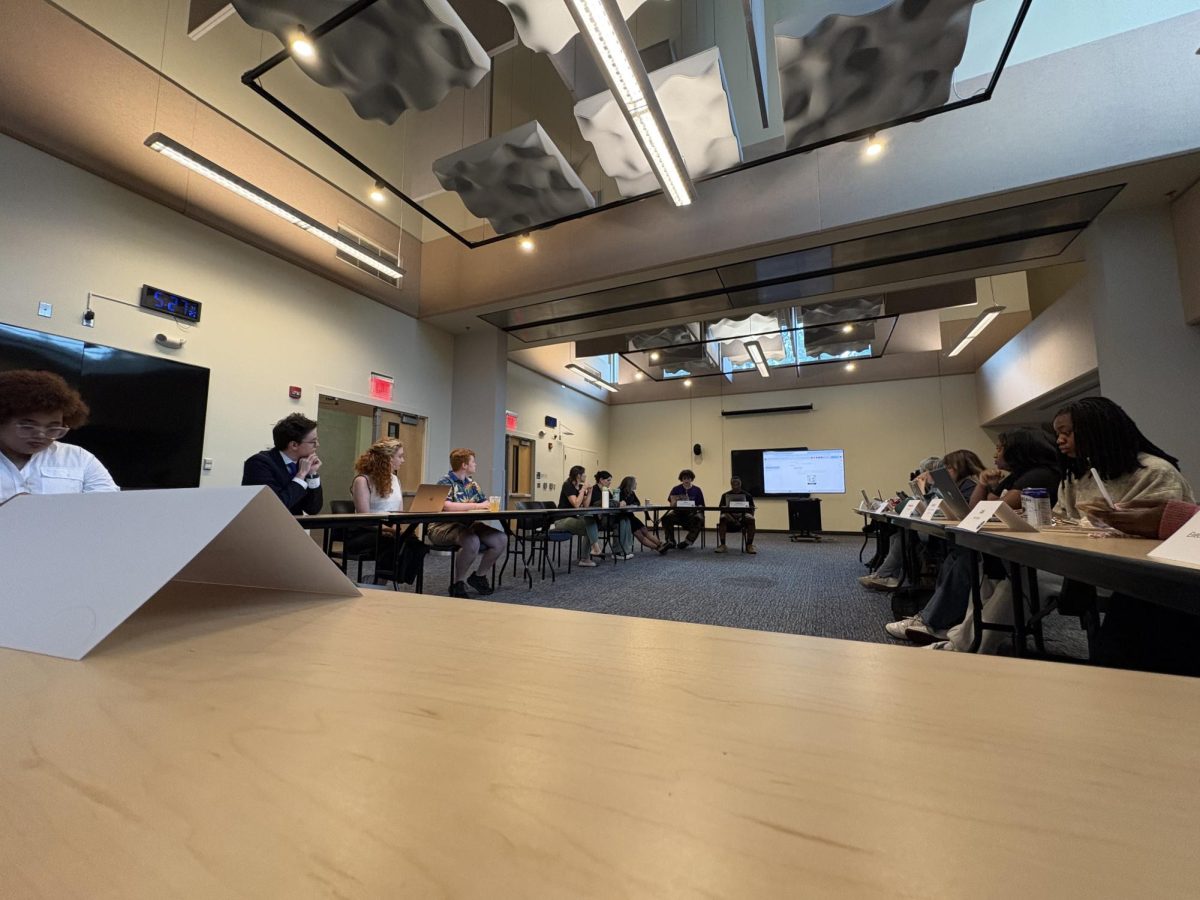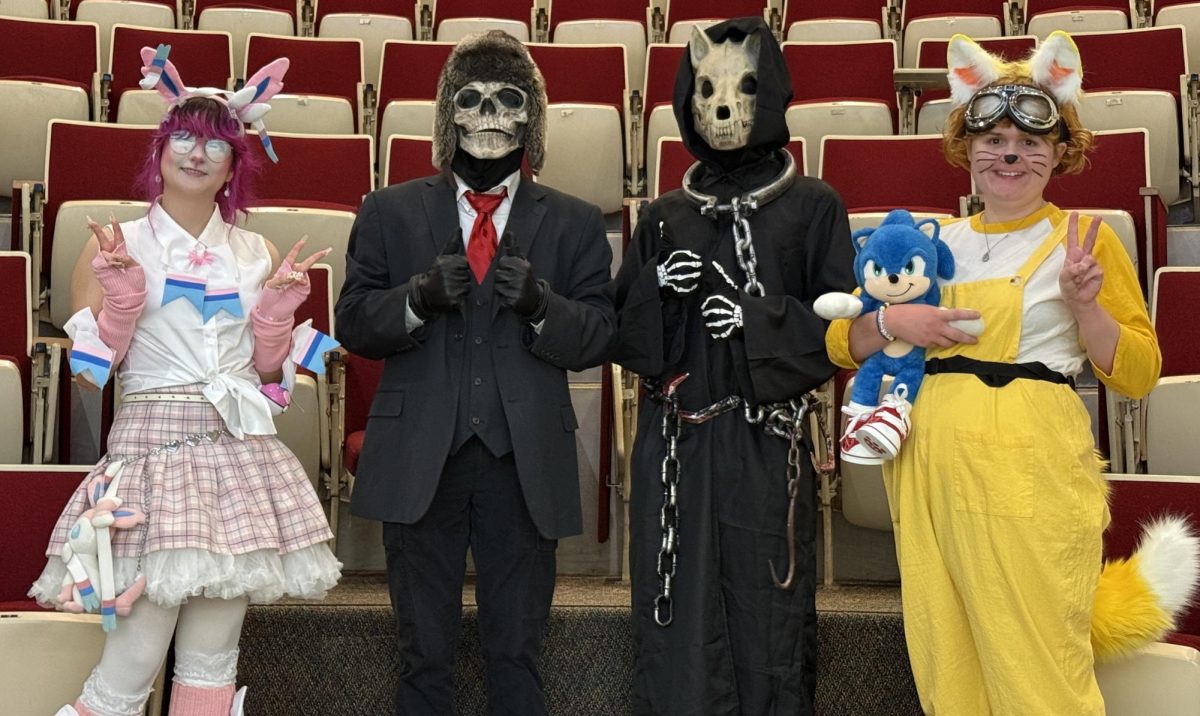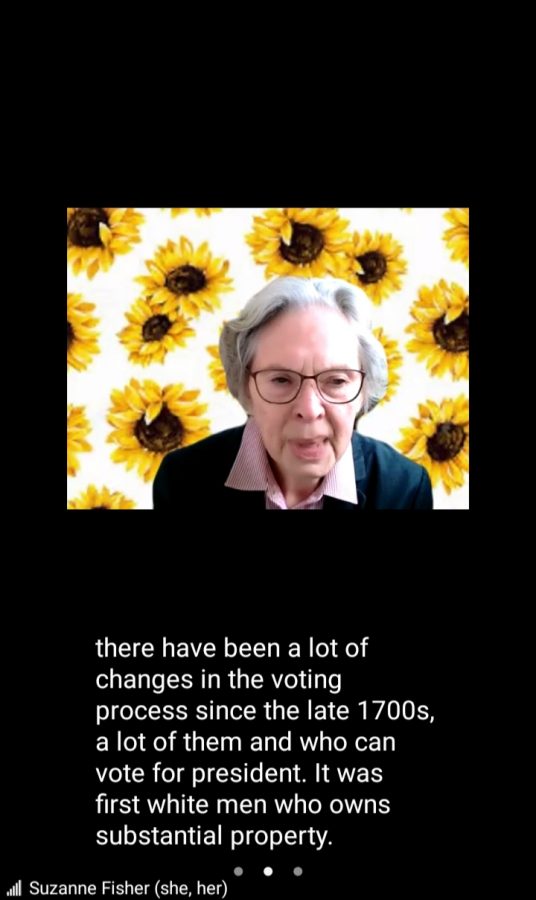UNCA College Democrats discuss voting rights with League of Women Voters
Suzanne Fisher, president of the League of Women Voters, discussed the evolution of voting rights in the United States.
March 22, 2022
The UNC Asheville College Democrats and co-hosts welcomed the League of Women Voters president Suzanne Fisher to discuss voter rights. The hybrid event on March 15 promoted the National Popular Vote Interstate Compact while going through a timeline of the United States election system.
The College Democrats, typically seen at tabling events across campus, work to inform students of local and state election processes and increase the number of registered voters. Hannah Goldfarb, co-president of the Democratic organization, said the unpopularity of the electoral college system is a common denominator to some Bulldogs’ lack of faith in the election process.
“What I’ve encountered the most in my experience when talking to people about why they do or do not vote is the fact that their vote doesn’t matter, like Suzanne was talking about in the recent presidential elections where a candidate has won the popular vote, but not managed to win (the election) because of the electoral college. I think that makes people feel like their vote doesn’t matter, which is very valid,” Goldfarb said.
Co-president of the College Democrats Jacob Pinto told the Blue Banner in a previous interview the biggest goal of the club is to educate through nonpartisan discussions on civic engagement and bring awareness to electoral system reforms.
“Democracies only work if the population knows what they’re doing and knows what the policies and people they stand for are,” Pinto said.
Nonpartisan co-hosts, LMV and the Civic Influencers acknowledged students’ sentiments in their presentation addressing voter suppression, gerrymandering and other discouraging aspects of our democracy.
College students remain a large population of first-time voters and have a strong influence on the outcome of local elections, provided they turn in their ballots.
According to a research article by The Center for Information & Research on Civic Learning and Engagement (CIRCLE) at Tufts University, over 50% of youth in North Carolina voted in the 2020 presidential election, illustrating a promising trend of 18-to-29-year-olds showing up at the ballots. Presidential candidates spend a majority of their time campaigning in states with the highest electoral votes.
Fisher advocated for the National Vote Interstate Compact, an agreement to elect the candidate with the highest percentage in the popular vote as president. As of February 2021, the N.C. state senate bill was introduced and has yet to reach the governor’s desk.
“I mean obviously, they’re going to look as to where they can get the most coverage in some ways, but I think it will encourage them because a lot of our elections, I mean the last one was a very strong margin, but a lot of our elections are a fairly small margin. So, you know you’re looking for the total votes in the whole country, and you really can’t ignore any votes at all,” Fisher said at the Q&A.
The compact argues the law could attract more eligible voters to participate in not only presidential elections, but accurately inform them about all the races on the ballot.
Fisher thanked students for their attendance at her first college talk and hopes to attract young women to the action-dedicated grassroots organization centered on public policy and basic human rights. Coordinator for the National Popular Vote Eileen Reavey commented on the compact’s popularity in college students.
“Yes, we do see students and younger voters drawn to the National Popular Vote. Traditional-aged college students have spent between 44-to-55% of their lives under a U.S. president who came into office after losing the popular vote. Their lives have been the most impacted – and will continue to be the most impacted – by this inequitable system,” said Reavey. “I think a lot of students are extremely aware of this and want every vote to be equal.”
The College Democrats find a balance between hosting partisan speakers while remaining committed to civic education on campus. The organization’s alignment with left-leaning values has no bearing on the club’s mission to students and their collaborative volunteer work with the College Republicans at UNCA.
“I think showing that that initiative is alive and well and people are really working on that is very important. We’re not giving up on the system and we’re trying to work within the framework we have to make that possible,” Goldfarb said.
This Thursday, Democrats will host Katie Dean, D-11 Congressional candidate in a hybrid meeting to discuss her political views in Zageir 237 at 7:15 pm.
Get Involved:
https://circle.tufts.edu/latest-research/half-youth-voted-2020-11-point-increase-2016
https://www.studentsfornationalpopularvote.com


















